Interview With Ellen Birkett Morris

What a great pleasure it was to speak with Ellen Birkett Morris! A gorgeous fiction writer and poet, Ellen has recently begun to write essays about her life experiences. Please join us as we speak about being wonderfully “abnormal,” about the huge realization that it’s okay to ask for help when we need it, and about facing challenges with joy and laughter. (There’s even a mention of Mick Jagger–be still my teen-age heart–licking Keith Richard’s lips!)
Diane: Welcome Ellen! I am so excited to talk to you today. I read your article, oh my gosh, it’s phenomenal. I was floored. It was published in the Ethel, the AARP magazine for women 50 and over, and it’s called “My Path to Self-Discovery in the Midst of Awful Pain.” You didn’t make up that title, did you?
Ellen: No.
Diane: I didn’t think so! You start with a really powerful sentence: “I remember my first steps, I was five.” Wow! Can you just tell us about this piece and about your journey?
Ellen: Absolutely. This piece is really the culmination of a lifetime of dealing with a variety of challenges, as we all do. Mine in particular happened to be that I was born in 1965—three months early. I weighed two pounds and some ounces. It was before they had learned how to miniaturize equipment for kids, before there was a lot of neonatal care in place. I was really, really premature. And the upshot of that was that I had a mild case of cerebral palsy. My Achilles tendons were very short, so I was up on my toes. It’s really difficult to get around that way.
My mother, who was a nurse, overheard my orthopedic doctor say that they put kids in braces to appease the parents. I was wearing metal braces. So she switched me to another doctor who said, “There’s surgery for this, we can do this.” The opening image in the article references the surgery that allowed me to walk on the flat of my feet without cumbersome metal braces.
“There Will Be Times When I’m Going to Have to Say, ‘I Need Help, or I Need Rest, or I Need Somebody to Throw Their Arms Around Me Right Now.’”
Diane: Wow. I’m so glad your mom overheard that.
Ellen: Yeah, just a series of good coincidences. The pediatrician was so dedicated. I was so small that the nurses were afraid to feed me, and he would come in and feed me. My mother overheard that orthopedic doctor and got me to the right person. I really credit her with a lot for doing that. It was a definite game changer for me.
Diane: You mentioned in the article another doctor, who told your mom that when you fall down (in braces), she should just let you get up yourself.
Ellen: Right. And it was only in conversation with somebody else who expressed horror at that, that I realized how really horrible that had been. I think I knew it internally, but some things we really don’t want to look at because they’re so very painful, both the physical act of going through that falling down and getting up, and the sort of mental implications of that. It was only when I was faced with increasing health challenges, when I was older, that I figured out I’m not going to be able to soldier through everything here. There will be times when I’m going to have to say, “I need help, or I need rest, or I need somebody to throw their arms around me right now.” But because of that falling down and picking myself up, because of that approach, there always was this idea that that’s what you do. Don’t make waves, don’t make noise. Get up and keep going. And I know now that’s not the answer.
‘I Came Face to Face with A Need for Me to Tell My Own Story”
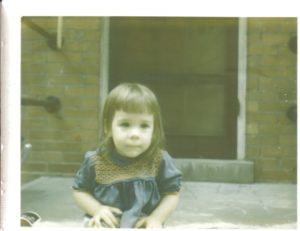 Diane: Oh, it’s not the answer. That paragraph was so powerful because there your mom was crying. She wanted to help you up, but she listened to the authority of this male doctor. It brings to mind how much damage was done because women listened (and still listen) to male doctors and other authority figures on child rearing, while denying their own authority—what they know inside is right. Listening without question to authority is another message we are taught very young. And this whole thing about soldiering through and being on your own? No. We’re here to help each other. And to ask for help when we need it.
Diane: Oh, it’s not the answer. That paragraph was so powerful because there your mom was crying. She wanted to help you up, but she listened to the authority of this male doctor. It brings to mind how much damage was done because women listened (and still listen) to male doctors and other authority figures on child rearing, while denying their own authority—what they know inside is right. Listening without question to authority is another message we are taught very young. And this whole thing about soldiering through and being on your own? No. We’re here to help each other. And to ask for help when we need it.
Ellen: Exactly. To learn how to do that. That has been my primary challenge. I write fiction. I have a collection of short stories called Lost Girls that are stories of female resilience. And I put in those stories, all of the emotion, all of the feelings and the challenges that come from my own personal experience and channeled those, I think, very effectively. But finally, I came face to face with a need for me to tell my own story, to sort this out for myself in a way that allowed me to track what I’ve been through, honor what I’ve been through, but also acknowledge what I’ve learned and the role of other people in helping me cope and thrive.
And then if there’s an opportunity for somebody else who’s felt this way to read this and to say, “Oh, wait a minute, I can do these other things. I can look within. I can look to my community. I can look outside in the world and find myself there,” then that’s the message I want to send.
“We’re All Wonderfully Abnormal in Our Own Way”
Diane: That’s an amazing message. You’ve had your specific challenges, but I think everybody hits up against this question of when is it okay to ask for help? When is it just okay not to be okay?
Ellen: Right. That’s the message I get repeatedly from counselors I talk to, this idea of self-compassion and that it’s okay not to be okay. I picked up a book called Happiness Trap that my counselor recommended. It talks about the way we’ve put all this emphasis on happiness as the only acceptable emotion, when in fact there’s this whole range and we’re going to feel them all. The more engaged we are in life, and the deeper the relationships we have, the more we’re going to feel them all. There’s no escaping fear or sadness or anger or any of those things. And they are as legitimate, as important as this elusive quest for happiness.
Diane: Absolutely. yes. And you can’t really have happiness, can’t even understand happiness, without having experience some of the other feelings.
You also said—and I think so many of us can relate to this—that you thought it was your job to seem “normal” so people would like you.
Ellen: Yeah, and I think you’re right. I think we all feel this, and it’s only now that as a culture we’re becoming more sensitive and starting to have these important conversations, to allow ourselves to speak openly and frankly about the variety of experiences and challenges we have, that we’re able realize that we’re all wonderfully abnormal in our own way, that we all bring all of ourselves to everything that we do.
“Seeming ‘Normal’ Was Definitely A Pressure”
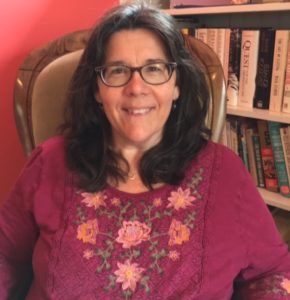 But seeming “normal” was definitely a pressure, and I really bore that and a sense of shame about some of this medical stuff, none of which I chose, none of which I asked for. And I think part of my ability to stand up and talk about this comes from how silenced women are in our society, how silenced people who are differently abled are, and on some level just feeling an obligation to stand up and tell my story, to not let shame be the norm.
But seeming “normal” was definitely a pressure, and I really bore that and a sense of shame about some of this medical stuff, none of which I chose, none of which I asked for. And I think part of my ability to stand up and talk about this comes from how silenced women are in our society, how silenced people who are differently abled are, and on some level just feeling an obligation to stand up and tell my story, to not let shame be the norm.
Diane: Why now?
Ellen: That’s a fantastic question, and I would say that it is some combination of, for me, being born with CP and being diagnosed at age 50 with rheumatoid arthritis. I also just had a year in which I had a hysterectomy and a thyroid and parathyroidectomy. And so really in the throes of that and the pandemic and chronic illness, having to navigate all that and avoiding certain things. All of this brought me face to face with a lifetime of feelings and fears and the whole nine yards.
And I was just in a place where I was ready to tackle it, where I was ready to try to understand it better, and to face it in a way that I hadn’t faced it before, and I think that’s it really. And that a lot of what you see on the page there has been rolling around in my head for a very long time.
Diane: Of course.
Ellen: So all of that really drove me to pick this as a subject and to really sit down and try to chart that journey, and hopefully repeat to myself some things I know to be true, about how to deal with the pain and the fear, and maybe then to share those strategies with other people.
“Aging Is the Sort of Great Common Ground We All Share”
Diane: Do you think getting older has anything to do with it as well?
Ellen: Oh, I’m certain that it does. I’m certain that all of these things are compounded in some ways by aging. Aging is the sort of great common ground we all share. Even people who’ve been incredibly fit, begin to feel the things that some of us have felt all our lives, low back pain or just various weird pain that they don’t know where it came from, that sort of thing.
Aging is sort of a great meeting place for coming face to face with your body and figuring out what you’re going to do with it. And also for camaraderie and fellowship among people as you share your stories and laugh about it or cry about it, or hold each other’s hands, all those things.
Diane: I also think we have to get to a certain level of maturity and experience before we can put things in a perspective that has deep meaning.
Ellen: You are right. I must say, to have processed it and understood it and put it on paper, was a very cathartic thing. I’m still going to trip over some of the same things I trip over now, but I know there are places to go, and I know from the response I’ve got to this essay, that I’m in good company.
That so many of us struggle.
Diane: Absolutely. And I think it’s really important to talk about your medical issues, say “this is my ‘normal’ and that’s just fine. I’d rather not have the pain, I’d rather not have the challenges, but this is all of who I am.”
Ellen: Right. Meet me where I am.
“They’re All Stories About Women and Girls, and, in One Form or Another, About Female Resilience”
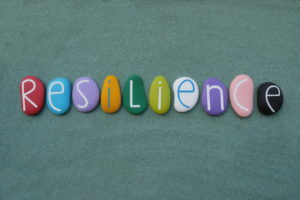 Diane: That’s right.
Diane: That’s right.
So let’s talk about your fiction a bit, and then I want to talk about moving from fiction to telling your story in nonfiction, because I would imagine Lost Girls, which is a gorgeous collection, (and I don’t just throw the “G” word out without fully meaning it). It is gorgeous. Can you tell us about some of the themes in the book and how they come together? Place and class feel really important in this collection.
Ellen: Many of the stories are set in a fictional town in Eastern Kentucky called Slocum and the small town setting plays into the idea that though we think we know our neighbors they have secret lives we know nothing about. I do think class is a part of stories too. There are characters from different walks of life, whose lives collide. The stories are linked in that they’re all stories about women and girls, and, in one form or another, about female resilience. The title story, which was inspired by a real kidnapping that happened in the neighborhood I lived in when I was just entering college, is the story of a woman who is attempting to honor a young girl who’s been kidnapped. As this big high-profile kidnapping happened in my community, the question I was left with is, “How many girls and women have been taken? And how do we remember them and how do we honor that? And how do we not forget?”
“The Basis of That Story Was How Am I Going to Honor This Girl Who’s Gone?”
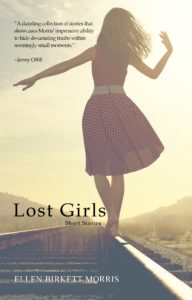 These kidnappings are in the paper and it’s a big deal and then nothing. And so the basis of that story was how am I going to honor this girl who’s gone? Other stories deal with a variety of topics. A woman who was used to being very beautiful is aging, and she’s seeing herself and she’s uncomfortable with what she sees. She’s also helping a fellow friend who, an old good friend who has Alzheimer’s. And in the course of doing that, she discovers that it really doesn’t matter whether she has her outward beauty at all. She’s still who she always was, who she was at 16, that person is still inside her. We’ve got the story of two young friends who are best friends, who are dealing with the potential illness of one of the girls’ mothers; two girls who are slightly older, who are staking out the laundry room in the apartments where they live and discover something they didn’t want to know.
These kidnappings are in the paper and it’s a big deal and then nothing. And so the basis of that story was how am I going to honor this girl who’s gone? Other stories deal with a variety of topics. A woman who was used to being very beautiful is aging, and she’s seeing herself and she’s uncomfortable with what she sees. She’s also helping a fellow friend who, an old good friend who has Alzheimer’s. And in the course of doing that, she discovers that it really doesn’t matter whether she has her outward beauty at all. She’s still who she always was, who she was at 16, that person is still inside her. We’ve got the story of two young friends who are best friends, who are dealing with the potential illness of one of the girls’ mothers; two girls who are slightly older, who are staking out the laundry room in the apartments where they live and discover something they didn’t want to know.
Diane: That was my favorite story in the collection: “Rumor of Fire.”
It’s definitely about resilience, the stories are also about loss. So there’s the “Lost Girl,” the one who was kidnapped, but all these characters are lost in one way or another, and the resilience part is how somehow they find their way, or find a path to move forward. Sometimes they’re like the little girl in the braces who fell, who has to get up on her own. And sometimes they have help from others. And sometimes there’s connection, in “Life After,” a story about the loss of a child and how that loss affected the parents, there was a possibility of reconnection.
“They Make Choices About Where They’re Going to Go from Here”
There family secrets in these stories. A lot of family secrets, which if anybody has grown up in a family that has family secrets, you know how devastating that is. Lots of early loss, mother loss, trouble, parents, troubled relationships, but there’s always hope. The characters learn from their experiences, they grow from their experiences, and they’ll be better equipped for the next one because there always the next one.
Ellen: And they make choices. They make choices about where they’re going to go from here or how they’re going to see a situation or what they need to do to escape or whatever the case might be.
Diane: That’s right. And there’s also humor, like in “Religion”.
Ellen: Religion happens to be my favorite story in my collection.
I started writing the story on the premise that social groups are sometimes like cults, and that people get into them, and then they have these stringent rules and expectations. But the story really quickly morphed into a story about loneliness, a story about wanting to be loved.
And so in that story, a young woman thinks she’s going to a decoupage class and wanders into a breast feeders league meeting. She decides to stay because they’re all so wonderful. She pretends to have a child, she makes up a fake child, she even goes out and gets a breast pump and herbs and tries to see if she can make her own milk come in. So she gets completely caught up in it. And these people are really lovely to her.
She just likes being a part of this world. And so it’s funny, it’s also very sad. I wrote it and sent it to the Antioch Review. A year later, their editor got in touch with me and said he wanted it.
“I’ve Got More Stories to Tell About My Experiences”
 Diane: Are you making a shift towards nonfiction or memoir?
Diane: Are you making a shift towards nonfiction or memoir?
Ellen: Not completely. I have a novel called Beware the Tall Grass, which is a finalist for the Donald L. Jordan Prize and one of five books being considered for publication. Beware the Tall Grass is a dual narrative between the mother of a son who has past life memories and the soldier whose memories the son has.
Diane: Ooh. I can’t wait to read that! Congrats and best of luck!
Ellen: Thank you! And so that’s currently being considered for publication through the Jordan prize and out to agents, fingers crossed. That novel started as a short story.
Diane: Fingers and toes!
Ellen: I have another novel I’m working on. And then I started short stories around the theme of home, because we’ve been thrown back into our homes and are so intimately familiar with the many dimensions of that concept. But I am doing more personal essays. I’ve got more stories to tell about my experiences, but I don’t know that I’m, at this point, that I’m ready to take on any sort of larger memoir length thing, that would be something that I need to really think about.
Diane: Well, I hope you do, selfishly.
For much of your life, like so many of us, you tried to bend and fold yourself to fit in and be “normal,” whatever that looks like. How does it feel now to be in a major publication, talking about your difference and putting that out there, loud and clear?
Ellen: I have an abundance of feelings around it, and there are moments, even like now when I feel I might cry when I think about taking that step forward, when I think about putting it out there. On the other hand, I think I have the unique combination of that story which resonates and the ability to tell that story. And that makes me feel obligated to go ahead and do it.
“All of Us Just Want to Live Our Lives, Do Our Work and Be Recognized for Our Work”
I must say the reception I’ve gotten has been so heartening and wonderful. There are people who’ve enjoyed it just for the writing. There are people who’ve enjoyed it because it informs their own experience and their own challenges.
There are people who’ve known me forever who didn’t know this, who say, “Ah, sorry that you experienced this, but bravo for sharing it.” So I’m getting the whole range. I’m even getting the occasional thing that I don’t think anybody who’s differently abled wants, which is, “You’re so inspiring.” I mean, that’s fine. But really, all of us just want to live our lives, do our work and be recognized for our work.
Diane: We’re all just doing what we have to do, right?
Ellen: That’s right, we’re all just doing what we have to do, and all we want is to be able to do our stuff with a minimum of interference from life and our bodies and all of that. So I have been really heartened by the reception that it’s gotten, but it just felt a bit risky, and there’s a lot of emotion around it, and some of the stuff I’m still processing. But the other thing is that I think it represents, in some ways, an integration of who I am, how I’ve presented myself, what I’ve experienced, what I’ve put down on the page. It really brings it all together, and that is good, to feel integrated in that way. It’s a positive, powerful thing, and I think that’s what all people get when they tell their story, whether it’s trauma or abuse or different abilities or health things. When we do that, we can begin to bring all these pieces of ourselves together in a way that’s healthy and whole and real and honest, and hopefully helps somebody else.
“The Rolling Stones Were On, and Mick Jagger Went Up to Keith Richards and Leaned Over and Started Licking Keith Richard’s Lips”
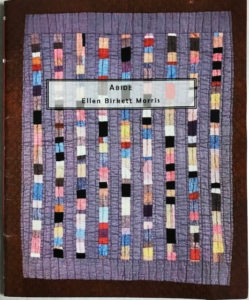 Diane: I think telling our stories is such a gift to others. You don’t know who’s going to need that. Do you know the poem “Why Bother” by Sean Thomas Doherty? Here goes:
Diane: I think telling our stories is such a gift to others. You don’t know who’s going to need that. Do you know the poem “Why Bother” by Sean Thomas Doherty? Here goes:
“Why bother, because right now, there is someone out there with a wound in the exact shape of your words.”
Ellen: That is really something. Thank you. Thank you for sharing that.
Diane: Yeah. I think that’s what we’re here for, right? I’m so glad that you’re getting the response you’re getting. That’s wonderful.
Ellen: Thank you. I’m really pleased as well.
Diane: So you also write poetry!
Ellen: I have a couple of poetry chapbooks. One came out last year called “Abide,” and the theme of that was being with “What is,” which we’ve all been doing here through this whole pandemic.
Diane: When do you know, “Oh, I’m going to write a poem now”, or “I’m going to do an essay now?” How does that work for you?
Ellen: One time I had a piece of material that had to do with me and my father watching Saturday Night Live back in the seventies. The Rolling Stones were on, and Mick Jagger went up to Keith Richards and leaned over and started licking Keith Richard’s lips. And my father was just having a fit. He just thought, “I’ve never seen … what in the world is happening.” And I thought, “Oh, wow, that’s really cool. What’s that about?” So I thought, “I’m going to write an essay, and it’s going to be about the kind of different ways we saw this.” Well, I started to write, and it was clear that I had just enough for a poem.
“Sometimes the Material Is the Thing That Guides Me”
And then there’s me and my dad in that room, watching television with that thing happening, and him being disgusted and me not, and I shared it with my dad. Well, he said, “It’s a great poem, except it makes me seem like an old fogey.” I was like, “Well, yeah.”
So sometimes the material is the thing that guides me. It’ll just kind of tells you, you’ve got enough for this, or you’ve got images or what you’ve got. And then maybe it’s more poem than it is essay. The novel that I mentioned that’s out with agents, started as a short story. I went to a workshop and the wonderful writer Erin Flanagan said to me, “I think this could be a novel.” And off we go.
Diane: That’s wonderful.
Do you work with writers? Do you do any editing?
Ellen: I do. I do some teaching through the Carnegie Center for Literacy and Learning in Lexington, Kentucky. Some of those are online classes. I’ve taught some classes through the Story Circle Network and offered some classes through the Loft in Minnesota. And I have done some individual coaching, more story content. “What have you planted here, what have you yet to exploit, where might you go from here?”
Diane: I almost forgot—your husband! You mention him in the article as a wonderful partner and support. I’m such a sucker for a good love story. Can you tell us how you met?
“Our Primary Thing These Days in the Face of All These Challenges Is Laughter”
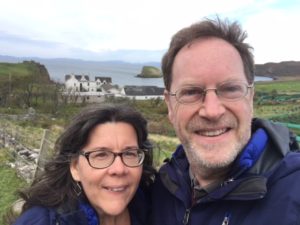 Ellen: This is fantastic. We used to go to the same bar. I, of course at the time, was only interested in anyone who held a guitar in his hands, but my best friend was dating his roommate, so we were in the same circle sometimes. One time, when he was introducing me to a few people, I accidentally knocked over a beer. He immediately ran to get me a towel. When I saw him cross the room, I said “what a lovely person. I need to get to know this guy better. He was just so kind and sweet, I said “we should exchange phone numbers.”
Ellen: This is fantastic. We used to go to the same bar. I, of course at the time, was only interested in anyone who held a guitar in his hands, but my best friend was dating his roommate, so we were in the same circle sometimes. One time, when he was introducing me to a few people, I accidentally knocked over a beer. He immediately ran to get me a towel. When I saw him cross the room, I said “what a lovely person. I need to get to know this guy better. He was just so kind and sweet, I said “we should exchange phone numbers.”
He took a survey at work and he came up as someone who develops and encourages other people’s talents. Coming up from the environment that I came up in, where my challenges were not acknowledged and, consequently not supported, having this wonderfully supportive person has just been fantastic. We find ways to support each other and our primary thing these days in the face of all these challenges is laughter. We laugh whenever we can.
Diane: This should be in Modern Love! It would make the Modern Love best story! Maybe your next project!
So we began with love—sharing your personal challenges is truly an act of love—and we’ll end on love.
Thank you so much for speaking with me today. It was a great pleasure to meet you and talk for a while. I will look forward to seeing more essays, fiction, and poetry from you in the future.
As always, I’d love to hear from you. Please write a comment or send me an email.
See you soon!
XOXOXO
Diane

For one-on-one support in uncovering your voice on the page, please consider working with me! I’d love to join you on your journey!



Wonderful interview, as always! And now I must pick up “Lost Girls.” Thank you Diane for sharing Ellen with us!
Thank you, Debbie! You will LOVE Lost Girls!!
Wow, what a beautiful interview. I am getting Lost Girls right now~
Thank you, Priscilla! And you will LOVE the book!!
Thank you! I hope you enjoy Lost Girls.
I have a soft smile on my face and a warmth in my heart after reading your interview with Ellen Birkett Morris….I, too, want to devour all she has written! Lost Girls…poems…and loved hearing “Why Bother”….Diane and Ellen, you are gifts! Your interviews and writing are glorious, raw, honest, gems…I shall share with all my girls 🙂
Oh, thank you, Marian! Love that you’re smiling and that your heart is warm! You will love Lost Girls! And so will all “your girls”!
Thanks, Marian. Diane is amazing!
I will read anything and everything that the wise, talented, and deep-hearted Ellen Birkett Morris writes! Lost Girls is one of my favorite short story collections.
I am in total agreement, Staci!
Thank you, Staci! That means so much.
Ellen Birkett Morris…great story teller, speaker, writer. She melted and broke my heart when she said she fell down when she was a child in braces and her male doctor said ,”do not help her” to her mother and her mom cried. Oh, how we give away our power as women and mothers!
In an instant, we see how her mother was her biggest advocate and champion for finding her surgeon.
I feel wiser from reading this blog. Most importantly, it placed me in my heart and soul as a reader.
Now that is a great gift.
Thank you Diane. xoxo
Oh, Meryl! Thank you for your heartfelt comments! I’m so glad the interview found a place in your “heart and soul!” Ellen’s gifts are a gift to us all, for sure!
Thank you so much, Meryl. My mother was my biggest advocate.
What a great interview. I LOVE the ideas behind the novel and these stories – so creative and original and ingenious. Can’t wait to read her work!
Thanks Alison! And Ellen’s work is right up your alley–you will love it!!
Thanks, Alison. I hope you enjoy Lost Girls.
Lost Girls will be my next read. I love me a good story collection! What a fine interview, Diane.
Thank you! And Greta! So good to hear from you! Hope all is well! You will LOVE the collection!
Thanks, Greta. I hope you enjoy Lost Girls.
I love this! I am going to look for this author’s short story collection right now. Excellent questions too. Thank you.
Thank you, Julie! And you will LOVE Lost Girls!It’s wonderful!
Thanks, Julie I hope you enjoy Lost Girls. Aren’t Diane’s questions the best?
This was inspiring in so many ways! I loved hearing about the stories & knowing which form to use & Ellen’s courage, her kindness, & how loving she is to herself & others. I will look for her work. Thanks Diane.
Thank you, Nicky!You will Love Ellen’s work–it’s beautiful!
Thanks, Nicky. I hope you enjoy Lost Girls.